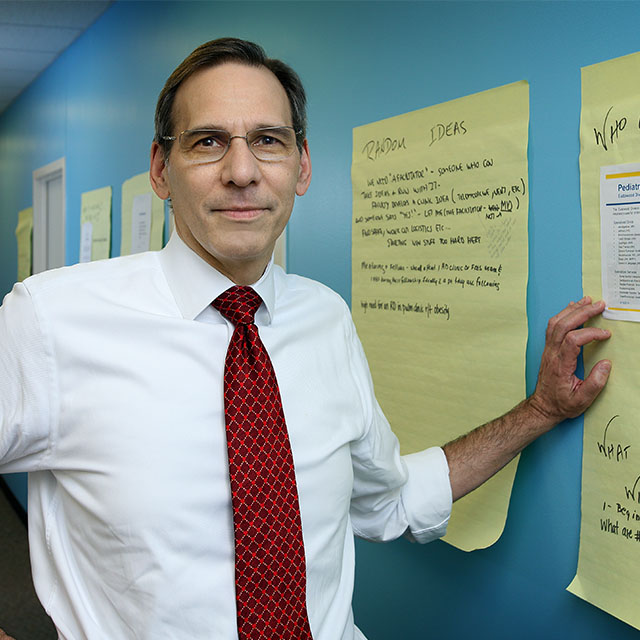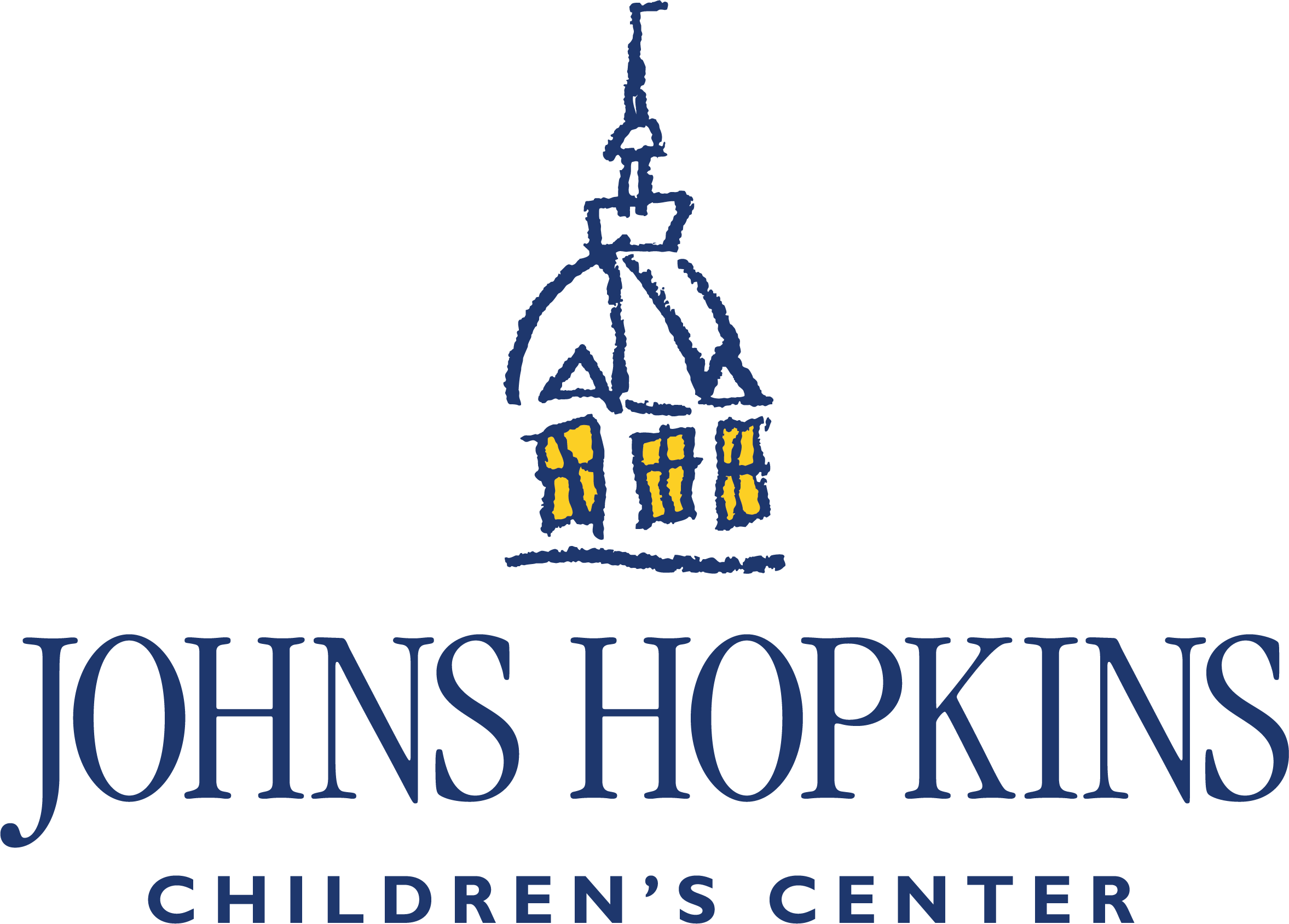Educational Program

Dr. Peter Mogayzel in the CF clinic.
Our educational program draws on the depth of resources available at Johns Hopkins to provide personalized learning to meet the fellow’s needs. The educational program provides clinical and research expertise through a combination of didactics, interactive learning experiences and individual mentorship.
- First-year fellow orientation: During the first two months of fellowship, orientation lectures are provided by pediatric and adult pulmonary faculty. The series introduces fellows to key topics in pulmonary medicine and science. Informal orientation sessions are also held with pediatric pulmonary faculty and staff to introduce fellows to various aspects of fellowship.
- Clinical mentorship: During the first three to four months of fellowship, each fellow will choose a clinical mentor in the pulmonary division. This faculty member meets with the fellow at least twice yearly and provides advice concerning research and clinical activities, career development and networking, and employment upon completion of training. It should be emphasized that all our faculty are happy to provide advice at any time, regardless of formal mentoring roles.
- Simulation Center: Johns Hopkins has a state-of-the-art simulation center that is fully equipped with patient rooms and operating rooms in which pulmonary procedures, including virtual bronchoscopy, can be performed. This is an excellent way for fellows to gain comfort with airway anatomy and bronchoscopic techniques and to practice various skills and simulated scenarios.
- Weekly division conference: The division holds a weekly fellow-led educational conference, which is a venue for fellows, faculty and outside speakers to present clinical topics and research findings. Past guests include research and clinical leaders from inside and outside the institution and even Nobel laureates. Fellows typically present their research progress every six months in this forum. Other activities for this forum include journal club and clinical case presentations/discussions.
- Weekly meetings with primary research mentor: Fellows meet with their primary research mentor at least weekly to discuss progress.
- Weekly board review for clinical fellows: A faculty member leads this interactive session with the fellows. Topics include pediatric pulmonology board question review, respiratory physiology, clinical and research ethics, research methodology, the business of medicine and practical preparation for transitioning into junior faculty positions.
- Monthly radiology rounds for clinical fellows: Fellows rotate in presenting two to three interesting cases to fellows and faculty with an attending radiologist reviewing the pertinent imaging findings.
- Department of pediatrics meetings: All fellows are encouraged to attend conferences given by the pediatrics department, including Grand Rounds and seminars. Fellows are encouraged to attend pediatric fellow seminars offered by the department on career guidance.
- Annual national scientific meeting: All fellows will attend one national scientific meeting per year during each of their three years of fellowship (e.g., American Thoracic Society, North America Cystic Fibrosis Foundation) at the division’s expense. Fellows are encouraged to submit clinical and research abstracts for posters and presentations.
- Public health training: All fellows take two quarters of biostatistics in their second year of fellowship and one quarter of epidemiology during their third year of fellowship. Fellows seeking additional training have the opportunity to complete the Master of Health Science degree offered through the Johns Hopkins Graduate Training Program in Clinical Investigation in their third year of fellowship. All offerings are at no cost to fellows. Requirements will be waived for fellows with an M.P.H. or similar degree.
- Personalized training: Fellows have additional opportunities to personalize their education with support from the division. Past fellows have undertaken teaching fellowships and ethics fellowships during their third year of fellowship. Other elective coursework through the Johns Hopkins Bloomberg School of Public Health is also available for interested fellows at no cost (tuition remission).
- Career guidance: In addition to mentorship from their clinical mentor, fellows receive formal group sessions and individual meetings on career development with the program director and division chair throughout their fellowship. Faculty will aid the fellow in networking and job placement in almost all areas of the U.S.
- Teaching: Fellows have ample opportunities to teach medical students and pediatric residents both in formal (noon conferences and teaching sessions) and informal settings (bedside rounds). Fellows are encouraged to develop a brief teaching portfolio during their fellowship.
- Quality improvement: As part of ACGME requirements, each clinical fellow must participate in a quality improvement (QI) project. Typically, fellows receive training in QI and participate in the annual division QI project run by a faculty member in either their second or third year of fellowship.
- Grants: Although T32 funding is provided for all three years of fellowship, fellows are strongly encouraged to submit at least one grant application for research support during their fellowship to gain experience with grant submission. Fellows also attend a grant seminar through the school of public health.
- Additional resources: Fellows have online and in-person access to the Johns Hopkins library system with access to information specialists. A library of pulmonary textbooks is available in the fellows’ office. First-year fellows receive a copy of Kendig's Disorders of the Respiratory Tract in Children. Fellows also have access to free biostatistics and epidemiology support for their research projects through the school of public health.

